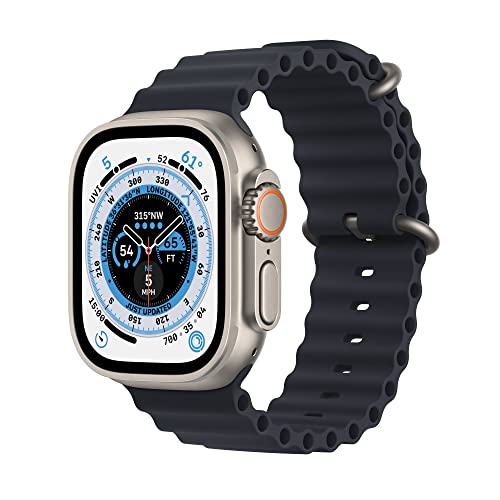14 subscribers
Go offline with the Player FM app!
511 - from data to dollars: optimising the revenue cycle.
Manage episode 473483974 series 2628426
In this episode of Talking HealthTech, host Peter Birch speaks with Charles Lie from Healthscope, Cathy Ryan from Cabrini Health, and Dean Breckenridge from Ramsay Health Care about the hurdles private hospitals in Australia are dealing with. They dive into outdated coding rules, workforce shortages, and the hiccups in revenue cycle management. They also cover how AI and automation come into play, discuss policy and funding roadblocks, and share some handy tips for staying financially sustainable.This episode was recorded as a live session in partnership with InfoMedix, bringing together representatives from across Australia's digital health ecosystem, including private hospitals, vendors, consulting firms, and government bodies, highlighting a broad interest and engagement with the topics discussed.Key Takeaways:
• Coding complexity is a real headache for hospital cash flow, highlighting the need for skilled coders and efficient systems.
• Bringing AI and automation into healthcare isn't smooth sailing because of specific coding standards and existing inefficiencies.
• Everyone needs to team up to reduce admin redundancies and make systems more efficient.
• Public vs. private hospital funding models are another ball game, making financial sustainability a big challenge.
• Simplifying funding models helps reduce the admin burden and improve the quality of patient care.Check out the episode and full show notes on the Talking HealthTech website.Loving the show? Leave us a review, and share it with someone who might get some value from it.Keen to take your healthtech to the next level? Become a THT+ Member for access to our online community forum, meet-ups, special offers, and more exclusive content. For more information visit talkinghealthtech.com/thtplus
540 episodes
Manage episode 473483974 series 2628426
In this episode of Talking HealthTech, host Peter Birch speaks with Charles Lie from Healthscope, Cathy Ryan from Cabrini Health, and Dean Breckenridge from Ramsay Health Care about the hurdles private hospitals in Australia are dealing with. They dive into outdated coding rules, workforce shortages, and the hiccups in revenue cycle management. They also cover how AI and automation come into play, discuss policy and funding roadblocks, and share some handy tips for staying financially sustainable.This episode was recorded as a live session in partnership with InfoMedix, bringing together representatives from across Australia's digital health ecosystem, including private hospitals, vendors, consulting firms, and government bodies, highlighting a broad interest and engagement with the topics discussed.Key Takeaways:
• Coding complexity is a real headache for hospital cash flow, highlighting the need for skilled coders and efficient systems.
• Bringing AI and automation into healthcare isn't smooth sailing because of specific coding standards and existing inefficiencies.
• Everyone needs to team up to reduce admin redundancies and make systems more efficient.
• Public vs. private hospital funding models are another ball game, making financial sustainability a big challenge.
• Simplifying funding models helps reduce the admin burden and improve the quality of patient care.Check out the episode and full show notes on the Talking HealthTech website.Loving the show? Leave us a review, and share it with someone who might get some value from it.Keen to take your healthtech to the next level? Become a THT+ Member for access to our online community forum, meet-ups, special offers, and more exclusive content. For more information visit talkinghealthtech.com/thtplus
540 episodes
All episodes
×1 522 - Important considerations for Australian GPs when choosing an AI scribe 22:04
1 521 - How to build better healthcare technology 26:18
1 520 - Lost in Translation: Fixing the Communication Gap in Healthcare 28:20
1 519 - The Role of AI, Policy, and Governance in Transforming Healthcare Systems 41:10
1 [BONUS EPISODE] Power of Co-Design in Healthcare: Insights from Jeremy Kerr and Anja Christoffersen 46:41
1 518 - Telehealth’s second act. Diana Pitts, Coviu Global 26:04
1 517 - From Cybersecurity to AI: Insights from HIMSS 2025 1:02:21
1 516 - Solving administrative burden in general practice 28:09
1 515 - From Cybersecurity to Patient Experience: Key Insights from Australian Healthcare Week 2025 18:07
1 514 - Streamline Solutions Acquires Medicity 10:18
1 513 - Communications in Healthcare: On the Precipice of Change 18:55
1 512 - HIMMS25: Dedalus ORBIS EMR and AI - ANZ Briefing 20:26
1 511 - from data to dollars: optimising the revenue cycle. 57:07
1 510 - Interoperability: Closing care gaps for better outcomes 35:11
1 509 - The opportunity to implement safety and quality telehealth standards in Australia 31:15
Welcome to Player FM!
Player FM is scanning the web for high-quality podcasts for you to enjoy right now. It's the best podcast app and works on Android, iPhone, and the web. Signup to sync subscriptions across devices.









